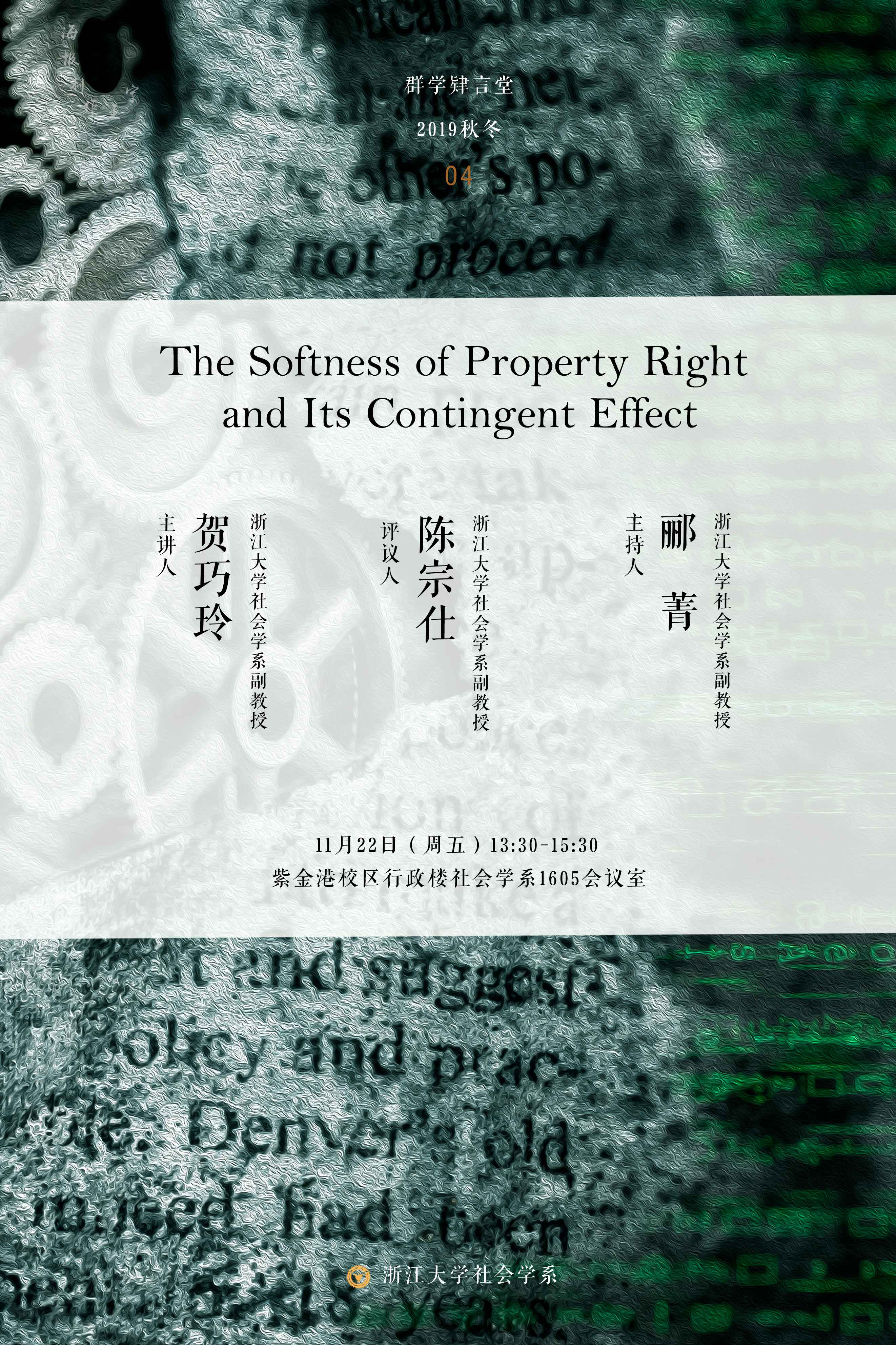
【群学肄言堂】第六季第四期 | 贺巧玲:The Softness of Property Right and Its Contingent Effect
主讲人:贺巧玲 (浙江大学社会学系副教授)
评议人:陈宗仕 (浙江大学社会学系副教授)
主持人:郦 菁 (浙江大学社会学系副教授)
时间:11月22日(周五)下午13:30-15:30
地点:浙江大学紫金港校区行政楼1605社会学系会议室
讲座大纲:
Property is a core element of modern society, frequently discussed in classic sociological works. Recently, while admitting the complementary role of social contexts in establishing the property rules, a common view in economic sociology and development sociology is that, in the long run, there will be market failure if property rights lack effective enforcement from state institutions. However, this argument is at odds with what has been found in China with respect to intellectual property (IP): despite wide criticisms about weak legal enforcement of IP rights in China, there have been large IP-related economic activities.
Through examining the use and enforcement of IP rights in China, this research argues that the “established wisdom” does not work because it assumes all property rights play a same role in shaping the economy in modern societies. Based on studies in three industrial sectors (medical sector, telecom equipment sector, film and TV sector), this research indicates that, various types of property rights present different features in practice: “hard” property rights enforced by the state are necessary for the economy; however, for “soft” property rights, with a more flexible nature of right claim, and a corresponding conditional nature of the legal institutions, the effects of the property right regime on economy turn out to be much more contingent. Due to the existence of multiple possible mechanisms with regard to “soft” property rights, whether the same institutional features stimulate or hinder economic activities depends on specific social contexts.